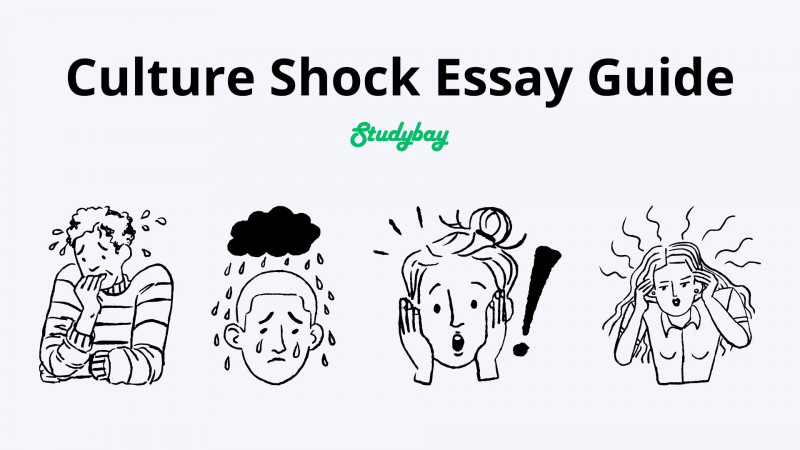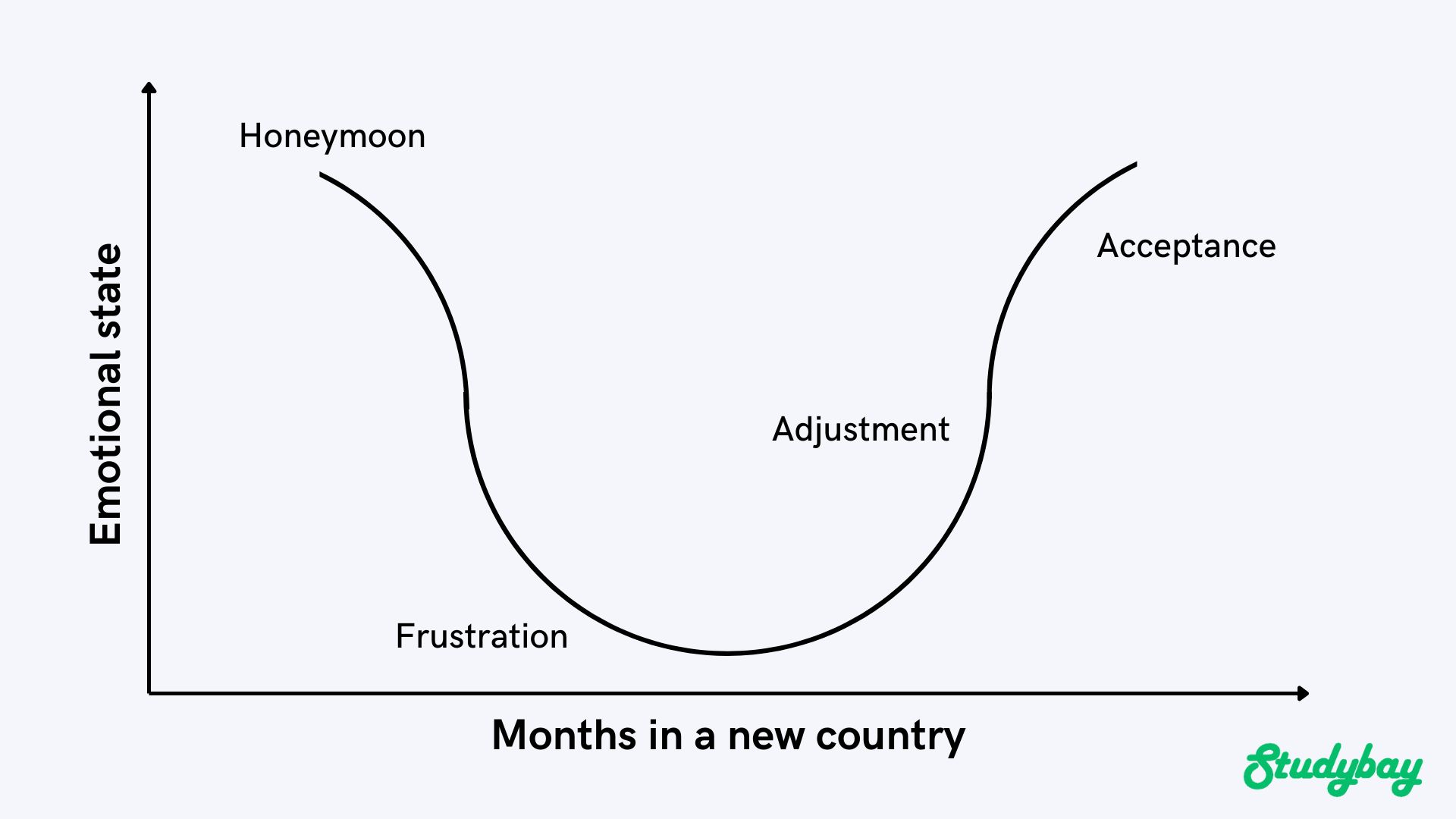
13 min
0
01.31.2024

First and foremost, what is a culture shock essay?
Culture Shock Essay
A culture shock essay is a paper that describes the emotions, reactions, and observations an individual experiences when exposed to a new cultural environment different from their own.
Such essays explore the disorientation, confusion, surprises, anxieties, excitements, and learning that occur when adjusting to new norms, values, beliefs, behaviors, and ways of life in a different culture.
The Purpose of Culture Shock Essays
Culture shock essays serve several academic and personal purposes, including:
- Helping individuals make sense of intense cultural adjustment experiences through writing. Putting emotions and reactions into words can clarify one's feelings and observations during confusing transitions.
- Educating others on the various stages, emotions, and coping strategies for adapting to unfamiliar cultural settings. These personal accounts provide insight for those planning to enter new environments on what to expect.
- Building cultural awareness, empathy, sensitivity, and skills for better adjusting to diversity. Openly describing culture shock promotes understanding and compassion across differences.
- Assessing one's own ethnocentrism, prejudices, privileges, and norms by contrasting another cultural experience against one's own ingrained perspectives. This reflexivity helps develop a more flexible, open worldview.
How to Write an Essay on Culture Shock
Capturing your insights gained and the emotional journey faced during cultural adaptation on paper can serve as a profoundly clarifying and transformative exercise. Choose a distinct cultural immersion experience and consider the following guidance to effectively compose such a reflective piece:
- Choose a cultural immersion experience: Focus your essay on a time you experienced a culture distinctly different from your own through study abroad, overseas work or schooling, military deployment, immigration, or an extended stay with a new family.
- Consider contrasts and sharp initial reactions: The crux of a culture shock college essay is contrasting initial perceptions with realities discovered through cultural immersion and disorientation. Analyze the gap between an assumption held before arriving and a local custom that surprised you.
- Describe your emotions across time: Share what first drew you to the new location. What aspects eventually frustrated or confused you? When did you settle in, and what realizations, locals, or experiences enabled your adaptation? Analyze your mental ups and downs.
- Highlight places you struggled: Share stories of misunderstandings, confusion, navigating local customs, or communication issues that challenged you deeply. Consider dining, friendship, or transit difficulties. Envision these scenes vividly.
- Spotlight cultural mentors or guides: Who assisted your cultural learning? How did they interpret the confusing aspects of local life? Recall how such guides responded to your mistakes with patience and instruction.
- Analyze implications: What stereotypes or assumptions did the experience shatter for you? How did immersion change your self perspective and worldview? What wisdom on life or diversity did you glean?
- Learn the language: Sprinkling in bits of local dialect or concepts when relevant enhances an essay’s richness. But define the terms for general readers. Discuss if language barriers impacted your adaptation.
With deep analysis of your emotions, shifting reactions, and ultimate inspirations or lessons learned through cultural immersion, your essay can profoundly impact and educate readers facing their own cross-cultural journeys.
The Stages of Culture Shock
Essays about culture shock often follow a loose narrative structure aligned with the commonly observed stages of cultural adjustment:
|
Honeymoon Stage |
Initial fascination, enthusiasm, and optimism about a new culture occur during the first few weeks, when differences feel exciting. |
|
Frustration Stage |
Growing tension, stress, confusion, homesickness, and depression as cultural differences lead to communication breakdowns, misunderstandings, and difficulties functioning. Can last for months. |
|
Adjustment Stage |
Increased ability to function, understand cultural logic, and accept new cultural environments. Tips and strategies for appropriately navigating the culture become clearer. |
|
Acceptance Stage |
The new culture feels comfortable and familiar. One is able to fluidly navigate cultural contexts according to one's needs and personal values. |

Key Areas to Describe
Culture shock academic essays provide detailed examples of emotional reactions, surprises, challenges, and cultural learning across aspects of the new environment, like:
- Communication dynamics such as language barriers, sociology, etiquette and non-verbal styles
- Societal customs, norms, taboos, and etiquette in areas like business, dining, friendships or romance
- Food, cuisine, dishes, dining setups, rituals, and levels of hospitality
- Transportation systems and norms around commuting, driving, and rules
- Social relationships, friendship-building approaches, dating norms, personal space
- Recreation activities, interests, norms around sports/arts/leisure pursuits
- Values, beliefs, worldviews, mindsets, humility, and power dynamics of locals
- Housing/shopping/finance differences such as appliances, stores, bureaucracy
- Government authority, legal system, dealings with police or bureaucracy
- Religious diversity, rituals, norms, and influence on culture
By using vivid scenarios to describe experiences across these aspects, readers gain an insider's perspective on the confusion, learning rollercoaster, and emotional work of cultural adjustment over time.
Coping Strategies to Describe
A core element of an essay about culture shock is articulating the coping strategies and learning that aided cultural adaptation, such as:
- Reframing one’s mindset with patience and curiosity
- Observing norms around greetings or transactions
- Asking locals to explain confusing references
- Bonding with fellow immigrants and dealing with discomforts
- Balancing immersion with familiar downtime outlets
Sharing not just the confusion but also the personal growth and coping methods used to advance one’s understanding of a culture’s complexity reveals insight valuable to readers facing their own transitions.
Culture Shock Essay Example
Below is an excerpt from an essay by a student from America describing her experiences joining a summer academic program in South Korea:
"When I first arrived in bustling Seoul, I was astonished at how glitteringly modern and technologically advanced everything appeared compared to my small U.S. hometown. Stepping out of the subway into a tangle of neon signs blanketing food stalls filled with steaming dishes I'd never encountered, fast-talking figures dressed in sleek styles, and rushing crowds, I instantly realized I had cultural misunderstandings to reconcile between my assumptions of traditional Asia and contemporary Korea...
In my first few weeks, I fixated daily on all that felt wonderfully foreign, from hurtling cityscapes of concrete towers clashing with majestic palaces to long treks through outdoor markets cluttered with squid and unfamiliar fruits. I soon lived for escaping my rigid academic program to explore spicy foods, noraebang karaoke, and cultural sites. As the months stretched on, though, the sheen of excitement wore off as I encountered mounting logistical troubles...delicate social dynamics that seemed to exclude me as a loud foreigner, academic rules I couldn't decipher, and communication breakdowns while simply trying to order food or make friends. Stumped by difficulties I avoided admitting, I often feigned sickness in my room, feeling depressed and doubly aware of sticking out...
Over time, through Korean friends gently correcting my mistakes or explaining why lines seem so confusing (yet efficient), I slowly learned to appropriately navigate unfamiliar contexts. After accidentally offending a friend, I realized the importance of understanding how humility, formality, and quiet subtlety enable cohesion in crowded Korea despite chaos. Now fluent in not only language but social rituals, I move confidently between the Korea in my memories and the one before my eyes, equipped with hard-won skills for transitioning cultures..."
This excerpt demonstrates core elements in cultural shock essays: contrasting assumptions with observations, detailing emotional ups and downs, highlighting key areas of difficulty from communication to academics, and describing personal growth and realizing cultural complexity over time. While not encompassing this student's full experience, it reveals the profoundly disorienting yet insightful journey of cultural adjustment through first-hand perspective.
Final Thoughts
Essay writing about culture shock provides insightful windows into the growth-enhancing yet intensely destabilizing power of intercultural experiences. By openly detailing their struggles and triumphs in adapting to unfamiliar environments, essay writers gift readers with an empathy-building understanding of what connects our shared human experiences across differences. Such essays reassure that, however stressful initially, embracing cultural adjustment leads to experiential learning and life-long skills for flexibly bridging divides. Through courageous self-revelation, they help shrink our vast world to show how much we truly have to learn from each other.
References
Brown, L., & Holloway, I. (2008). The initial stage of the international sojourn: excitement or culture shock? British Journal of Guidance & Counselling, 36(1), 33–49. 10.1080/03069880701715689
Pollock, D. C., & Van Reken, R. E. (2017). Third culture kids: Growing up among worlds. Nicholas Brealey Publishing.
Holmes, Prue. (2006). Problematising Intercultural Communication Competence in the Pluricultural Classroom: Chinese Students in a New Zealand University. Language and Intercultural Communication. 6. 10.1080/14708470608668906.
FAQ
What if I don't have a big, shocking event to describe?
Do I focus on others' behavior or my reactions?
Do I share positive reactions only?
How do I conclude my learning journey?



